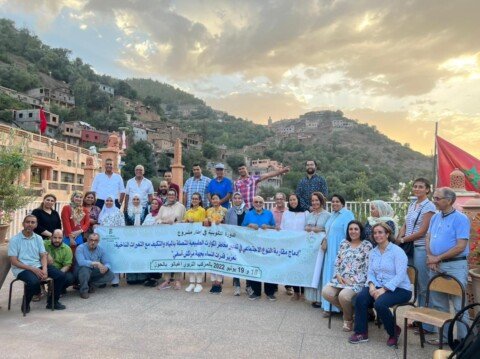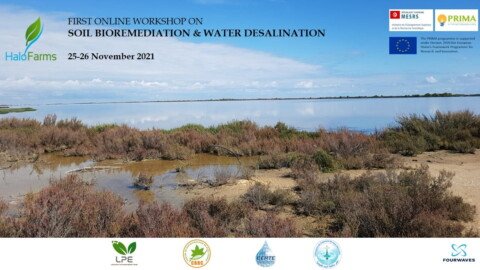Christopher E. Martin/CEO , Global Enviro Science
Tunisia is one of the most water stressed countries in the World. The climate is arid, drought prone and climate change will continue to exacerbate these conditions. The recognized threshold for Absolute Water Scarcity is an annual renewable water availability of 500 cubic meters per capita. Currently, Tunisia has an availability of approximately 400 cubic meters per capita. Water reserves stored in dams have fallen and ground water aquifers are being depleted at an alarming rate. A World Bank report further warns that climate related water scarcity is expected to cause economic losses estimated at 6-14% of GDP by 2050 in the MENA region, the highest in the world. The time is now for Tunisia to implement a comprehensive approach to increasing water supplies.
A sea water desalinization plants has come online in Djerba and others are in the planning stages for coastal areas. The Mediterranean is a tremendous resource for increasing water supplies in Tunisia. Sea desalinization, however, comes with many operational and economic challenges. The cost to SONEDE for one cubic meter of water from traditional water sources is approximately 0.7tnd/cubic meter. The estimated cost for water produced at the desalination plant in Djerba is over 3tnd/cubic meter. Who will pay the over 400% increase in cost? SONEDE is a government owned company running at an operational loss every year. Desalination plants also take years from initial planning to production, over 10 years for Djerba. Despite the high operational cost, Tunisia must increase sea water desalination volume.
Tunisia is in the process of building more dams to increase reservoir capacity. As stated above, existing dam reservoir levels have decreased significantly over the last few years, 25% in 2017 alone. In 2017, Tunisia used water from strategic water reserves for the first time due to drought and increased consumption. New dams, however, will not increase water reserves in times of drought which are projected to be greater in coming years due to climate change. Drenching rains must fall causing runoff to increase dam reserves. Light rains are absorbed by dry soil. New dams have limitations, but must be part of a comprehensive solution.
Industrial wastewater recycling for reuse provides an efficient increase in available water supplies without new sourcing. Requiring industrial and mining companies to recycle and reuse water in their production process can be implemented much faster than the new sourcing of dams and sea desalination plants. New technologies have made industrial wastewater reuse economically viable and even profitable. In addition to the water conservation of industrial water reuse, environmentally damaging contaminated discharges can be dramatically reduced.
Municipal wastewater can also be easily cleaned for reuse in many different areas, including agricultural irrigation. Currently, regulations are in place which limit the types of crops available for treated wastewater irrigation. Proven technology exists to treat wastewater to any standard for reuse. It is incumbent on government regulators to catch up with technology in this area. Tunisia is an agricultural driven economy with 80% of Tunisian water use going for agricultural irrigation. Currently, most gray water discharge from municipal wastewater treatment plants only pollute Tunisian water ways and soil. Wastewater treatment for reuse must be implemented as a crucial element in the comprehensive approach to increase water availability.
Lastly, water conservation measures must be implemented by all consumers to preserve our most valuable natural resource. Homes, schools, farms and businesses of all types, must be educated on the best practices of water conservation. Efficient or no flush toilets, low flow shower heads, automatic metered and shutoff faucets, rainwater collection, reuse and many more devices and methods are available now.
All Tunisians must have a sense of urgency to implement a comprehensive approach to increasing water supplies. Cape Town South Africa should provide a timely example for all water stressed areas. Although located on the Ocean, Cape Town is drought prone and has been water stressed for years. Community leaders were warned by experts about the coming crisis. 2019 brought Cape Town to the verge of zero water availability due to the lack of action of government officials and citizens. Businesses closed, tourism ceased and citizens spent all day retrieving their 25 liters allowed per person per day. Tunisians must act now to prevent this from happening in Tunisia.





